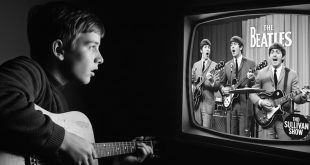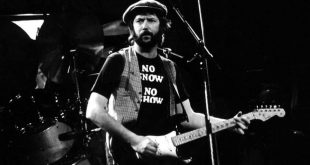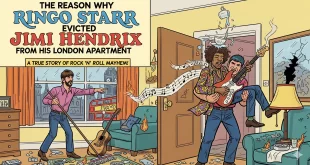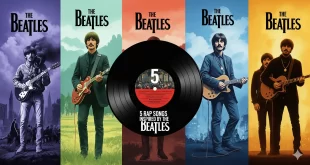The influence of The Beatles is so vast that it is nearly impossible to find a musician from the 1960s onward who wasn’t touched by their work in some way. Among those deeply inspired was David Gilmour, the legendary guitarist and vocalist of Pink Floyd, who has repeatedly acknowledged that the Fab Four were instrumental in shaping his career and his approach to music.
Pink Floyd in Awe of The Beatles
Pink Floyd’s connection to The Beatles dates back to their early years. In 1967, while recording their debut album The Piper at the Gates of Dawn at Abbey Road Studios, the band found themselves in the same building as The Beatles, who were simultaneously working on Sgt. Pepper’s Lonely Hearts Club Band.
Drummer Nick Mason later described the surreal experience:
“We were recording in Abbey Road, the temple of greatness, and they were recording ‘Lovely Rita.’ They were God-like figures to us. They all seemed extremely nice, but they were in a strata so far beyond us that they were out of our league.”
For Pink Floyd, witnessing The Beatles at work highlighted just how far the possibilities of rock music could be pushed.
Roger Waters on Creative Freedom
Former Pink Floyd bassist and songwriter Roger Waters has also been candid about The Beatles’ importance. He credited John Lennon, Paul McCartney, and George Harrison for showing young artists that music could be personal and boundary-breaking:
“I learned from John Lennon, Paul McCartney, and George Harrison that it was okay for us to write about our lives and what we felt — and to express ourselves. That we could be free artists and that there was a value in that freedom.”
Waters emphasized how Sgt. Pepper’s “absolutely changed the face” of the industry by making albums more important than singles. That shift gave Pink Floyd and other experimental bands the studio freedom to develop groundbreaking concepts like The Dark Side of the Moon and Wish You Were Here.
David Gilmour’s Lifelong Beatles Fandom
Although he wasn’t yet in Pink Floyd during those Abbey Road days, David Gilmour became the band’s most vocal admirer of The Beatles. Speaking to BBC Radio 2 in 2006, he admitted:
“I was an absolute mad Beatles fan. ‘You’ve Got To Hide Your Love Away’ is, I think, John Lennon’s first moment of being influenced by Bob Dylan. So it’s just one example of hundreds of things I could choose. Anything by The Beatles, really. Fantastic song.”
In a 2015 interview with Mojo, Gilmour went even further, confessing that he wished he could have been in The Beatles themselves:
“I really wish I had been in the Beatles. They taught me how to play guitar; I learnt everything. The bass parts, the lead, the rhythm, everything. They were fantastic.”
Busking Beatles Songs with Syd Barrett
The Beatles weren’t just an influence from afar. In the summer of 1965, before joining Pink Floyd, Gilmour and Syd Barrett (the band’s original frontman) traveled through France and Spain, busking Beatles covers in cafes and on the streets. Those performances gave them confidence, practice, and a clear path toward pursuing music professionally.
Collaborations with Paul McCartney
Years later, Gilmour’s admiration for The Beatles came full circle when he collaborated with Paul McCartney. He not only performed live alongside him at the famous Live at the Cavern Club concert in 1999 but also played the guitar solo on McCartney’s 1984 hit “No More Lonely Nights.”
During an MSN webcast in 2000, Gilmour reflected on these collaborations and was asked if he saw parallels between Pink Floyd and The Beatles, particularly regarding songwriting partnerships. Gilmour modestly replied:
“I’m a huge fan of the Beatles, but I don’t know what parallels are between us except we were both pretty good at what we did. I think we always tried to explore and push boundaries with the music that we made. And maybe there’s not enough of that nowadays.”
The Beatles’ Enduring Impact on Gilmour
For David Gilmour, The Beatles were more than just idols — they were teachers. They taught him how to approach the guitar from every angle, how to value artistic freedom, and how to push musical boundaries without compromise.
Pink Floyd’s legacy of experimentation, atmospheric soundscapes, and ambitious concepts owes a great deal to the groundwork The Beatles laid in the 1960s. As Gilmour himself admitted, without them, his path — and perhaps Pink Floyd’s — might have been very different.






